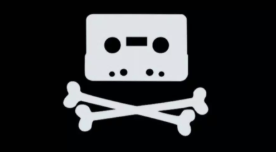Internet provider RCN has failed to have the piracy liability claims of several major music companies dismissed. The ISP argued that it's not responsible for allegedly pirating customers, discrediting much of the evidence that was presented. The New Jersey federal court, however, sees the music companies' allegations as sufficient at this stage but did dismiss similar claims against RCN’s management company Patriot.

Last year, several major record labels, helped by the RIAA, filed a lawsuit against Internet provider RCN accusing it of turning a blind eye to pirating subscribers.
The lawsuit is in many regards similar to the ones filed against other ISPs, such as Cox, Grande, and Charter, which were all accused of failing to terminate the accounts of repeat infringers.
According to the labels, RCN knew that some of its subscribers were frequently distributing copyrighted material, but failed to take any meaningful action in response. To compensate for this alleged inaction the music companies demand damages, which have the potential to run to hundreds of millions of dollars.
RCN didn’t recognize itself in this description. The company countered the accusations and filed a motion to dismiss the case. Among other things, the company argued that it can’t stop infringement and that it has no direct financial benefit from pirating customers.
This week US District Court Judge Michael A. Shipp ruled on the request. After hearing the arguments from both sides, he chose to deny the motion to dismiss. This means the case will continue.
At this stage of the case, the court has to review the evidence ‘in the light most favorable’ to the plaintiffs, which are the music companies. In this view, the music companies’ contributory and vicarious copyright infringement claims both survive.
For example, there’s enough evidence to allege that RCN knew of the copyright-infringing activities of its customers and that it contributed to them by providing Internet access. Those are two key elements of contributory copyright infringement.
Vicarious copyright infringement is generally harder to prove. That requires evidence that the ISP has the ability to control or supervise the activity and that it enjoyed a direct financial benefit. In other words, did the ISP profit from piracy it could have stopped or limited?
In his order, Judge Shipp notes that other courts have been divided on this issue in similar cases. While RCN cited a case where similar allegations were dismissed, the uncertainty on this matter is not enough to throw the claim out at this point.
“Here, construing the allegations of the Amended Complaint in Plaintiffs’ favor, and considering the lack of binding or persuasive authority on the issue of direct financial benefit, the Court finds RCN has failed to meet its burden at this stage of the litigation,” Judge Shipp writes.
As such, the contributory and vicarious copyright infringement claims against RCN are not dismissed and the case will continue.
This is a victory for the music companies, but Judge Shipp’s order also brings some bad news for them. The complaint also lodged the same copyright infringement claims against RCN’s management company Patriot. These were dismissed.
The music companies argued that Patriot effectively makes all policy decisions for RCN, including the repeat infringer policy. However, according to Judge Shipp, the complaint lacks evidence to back up these and other claims.
—
A copy of US District Court Judge Shipp’s order on RCN’s motion to dismiss is available here (pdf)
Source: TorrentFreak